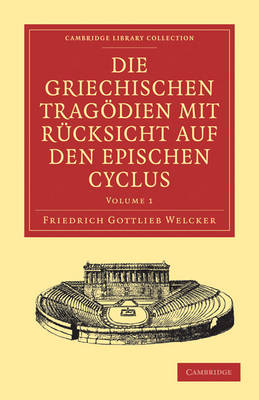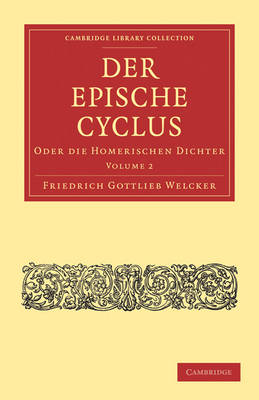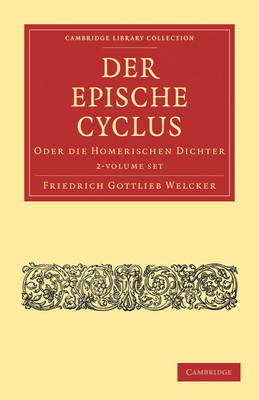Cambridge Library Collection - Classics
3 primary works • 9 total works
Volume 1
Volume 2
Die Griechischen Tragödien mit Rücksicht auf den Epischen Cyclus
by Friedrich Gottlieb Welcker
Volume 2
Die Griechischen Tragoedien mit Rucksicht auf den Epischen Cyclus 3 Volume Set
by Friedrich Gottlieb Welcker
Die Griechischen Tragoedien mit Rucksicht auf den Epischen Cyclus: Volume 3
by Friedrich Gottlieb Welcker
Die Griechischen Tragoedien mit Rucksicht auf den Epischen Cyclus: Volume 2
by Friedrich Gottlieb Welcker
Die Griechischen Tragoedien mit Rucksicht auf den Epischen Cyclus: Volume 1
by Friedrich Gottlieb Welcker



